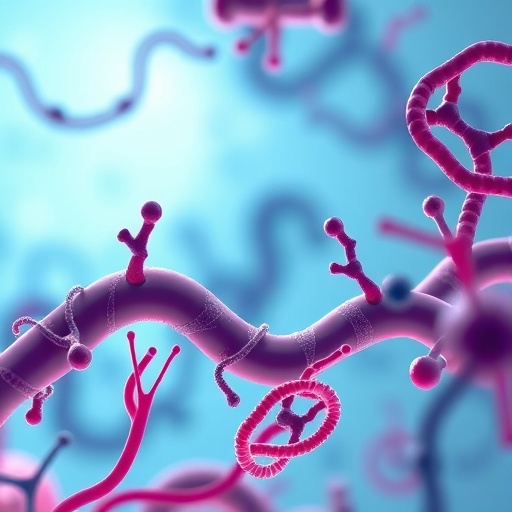The intricate relationship between the human microbiome and cancer has emerged as a groundbreaking frontier in oncology, reshaping our understanding of tumor biology and opening novel pathways for diagnosis and treatment. Published in the reputable open-access journal iMeta, a comprehensive review led by an international consortium of scientists systematically dissects the multifaceted roles that bacteria, viruses, and fungi play in the initiation, progression, and therapeutic response of various cancers. As the microbiome’s influence extends far beyond simple coexistence, this work underscores its function as an active participant—and sometimes even an orchestrator—in the complex ecosystem surrounding tumors.
This extensive review elaborates on how discrete microbial communities, embedded within or adjacent to tumor tissues, modulate cancer dynamics through biochemical and immunological mechanisms. Advanced sequencing technologies and metagenomic analyses have illuminated distinct microbial signatures linked to specific cancer types, offering promising biomarker candidates for early detection and prognostic evaluation. These microbial imprints not only signal the presence of malignancy but also reveal intimate details about the tumor microenvironment and its susceptibility to treatments.
One foundational discovery discussed in the review is the influence of microbial metabolites on the tumor milieu. Metabolites produced by commensal or pathogenic microbes can profoundly alter immune cell infiltration, inflammatory signaling, and metabolic pathways within tumors. Such metabolites include short-chain fatty acids, secondary bile acids, and oncometabolites, which may either promote tumor proliferation or enhance antitumor immune responses, depending on context. This metabolic crosstalk highlights the microbiome’s capacity to reshape the cancer niche at a molecular level, impacting disease trajectory.
The review also delves into the dualistic nature of viral and fungal inhabitants within the tumor microenvironment. Viral oncogenes, for example, have long been recognized as direct catalysts of carcinogenesis, yet many viruses modulate immune responses that affect tumor progression and response to therapy. Similarly, fungal elements, though less studied, contribute to local immunomodulation and may influence chemoresistance. Recognizing these viral and fungal components adds layers of complexity and opportunity for targeted interventions.
A critical theme emerging from the article is the microbiome’s profound effect on conventional cancer therapies. Chemotherapy, radiotherapy, immunotherapy, and molecularly targeted treatments all interact with host microbial ecosystems in ways that can alter efficacy and toxicity profiles. For instance, microbiota-driven modulation of immune checkpoints can either boost or hinder the success of immunotherapies such as PD-1 blockade. Moreover, microbial enzymes may mediate the activation or inactivation of chemotherapeutic agents, impacting systemic drug availability and side effects.
In exploring translational applications, the review highlights pioneering advances in microbiome-based interventions. Probiotics designed to restore or enhance beneficial microbial populations, fecal microbiota transplantation (FMT) to recalibrate dysbiotic communities, and engineered microbial therapies capable of delivering therapeutic payloads directly within tumors represent transformative strategies on the horizon. These approaches epitomize a precision medicine paradigm, leveraging microbiome manipulation to augment traditional cancer treatments or mitigate adverse outcomes.
Fundamental to translating these insights into clinical impact is the development of robust microbiome research technologies. The authors emphasize the necessity for cutting-edge multi-omics platforms integrating metagenomics, transcriptomics, metabolomics, and proteomics to unravel the mechanistic underpinnings of host-microbe interactions in cancer. Such technologies will enable the identification of actionable targets and facilitate personalized microbiome profiling to guide targeted treatments.
Despite the promising landscape, the review calls attention to the imperative need for deeper mechanistic studies and rigorous clinical trials. Comprehensive understanding of spatiotemporal dynamics of microbial communities within tumors, along with their functional consequences, remains nascent. Crucially, controlled clinical investigations must validate microbiome interventions’ safety, efficacy, and durability to transform these experimental findings into standardized cancer therapies.
Dr. Peng Luo, senior author of the review, articulates the paradigm shift aptly by stating that the microbiome is “not just a passive bystander but an active regulator of cancer biology.” This perspective underscores a new era wherein oncology intersects with microbiology, demanding integrative research to harness these microbial influences for clinical innovation. Precision oncology, enriched by microbiome insights, promises enhanced diagnostic capabilities and novel therapeutic modalities that transcend conventional approaches.
The synthesis presented by this international research team significantly advances our comprehension of the tumor-microbiome interplay. By intricately mapping microbial signatures across diverse cancer types and elucidating their mechanistic roles, the study sets a foundational framework for future exploration. Notably, the potential utility of microbiome-based biomarkers for early cancer detection could revolutionize screening protocols, enabling interventions at more curable stages.
Furthermore, the nuanced understanding of microbial mediation in therapeutic response heralds opportunities to optimize current treatment paradigms. Strategies to modulate the microbiome preemptively or concomitantly with cancer therapies may enhance effectiveness and reduce adverse effects, ultimately improving patient outcomes. This integration of microbial science into oncology is poised to become a defining feature of next-generation cancer care.
The authors advocate for sustained innovation in research methodologies and collaborative efforts spanning microbiology, oncology, immunology, and bioinformatics. As multi-disciplinary partnerships flourish, so too will the ability to decode complex tumor-microbiome relationships and translate them into tangible clinical benefits. The review acts as a clarion call to the scientific community, urging a concerted push toward leveraging microbiome science to fundamentally alter the cancer treatment landscape.
In summary, the revelation that the human microbiome intricately shapes cancer evolution and treatment response represents a watershed moment in biomedical research. By illuminating the active regulatory roles of bacteria, viruses, and fungi within tumor ecosystems, this landmark review in iMeta charts an ambitious roadmap toward microbiome-informed precision oncology. Continued exploration, technological advancement, and well-designed clinical trials will be vital to fulfilling the promise of microbiome-targeted cancer therapies in the near future.
Subject of Research: The role of human microbiome in cancer initiation, progression, and treatment response
Article Title: [Not explicitly stated in the source content]
Web References: http://dx.doi.org/10.1002/imt2.70070
References: [Details not provided in source content]
Image Credits: [Not provided]
Keywords: Bacteriology, Microbiology, Life sciences




